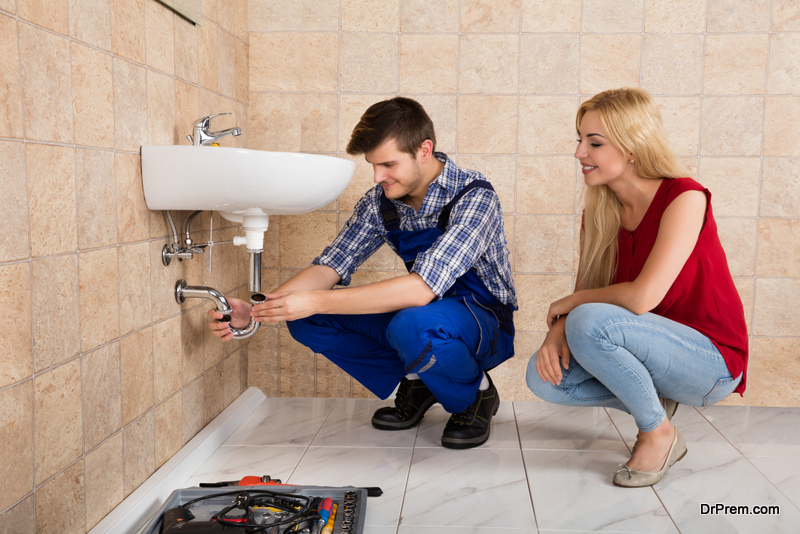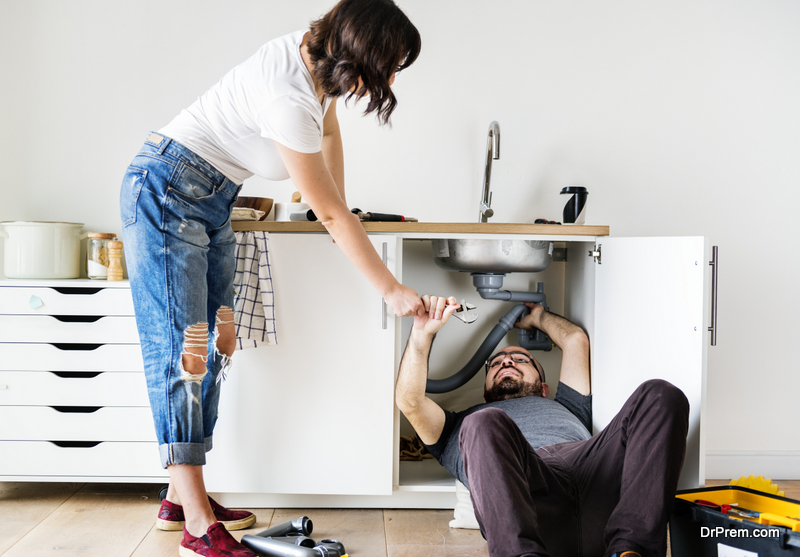Landlords need to spend time maintaining and upgrading their properties if they’re going to be successful. Committing repairs as needed and completing preventive maintenance are some of the best ways to keep your property in good shape, and adding new installations. The problem is, managing this maintenance and these repairs can be troublesome when you have existing tenants.
One of the best ways to mitigate this problem is to commit your repairs and upgrades during vacancies, which could otherwise eat into your cash flow.
The Benefits of Property Repairs and Upgrades

Let’s start by dissecting some of the most important benefits of repairing and upgrading your property on a regular basis:
- Immediate tenant appeal: A property with modern fixtures, and one that’s been well-maintained, will be more attractive to potential tenants. They’ll be more eager to apply for your rental, which means your vacancies will be shorter (and you’ll have better applicants, as well).
- Decreased tenant turnover: When your property is modernized and fully maintained, your tenants will be set up for success; they’ll be happier and more comfortable, and they’ll rest easy knowing their landlord cares about the property. That leads to lower tenant turnover, which means more consistent cash flow and fewer vacancies in the future.
- Fewer repair requests: Proactive maintenance is all about stopping problems before they become serious. If you take a few hours during a vacancy to tie up loose ends, clean things, and replace things that need replacing, you’ll be far less likely to be called out for a surprise emergency repair, saving you time and money.
- Property value and neighborhood effects: Upgrading your property also increases your property value and appeal to potential buyers (if you’re thinking of eventually selling it). The ROI on home improvement projects varies, but this is usually a significant factor to consider.
Why Vacancies Are So Important
Vacancies are the perfect time to commit these repairs and upgrades, for several reasons:
- Taking advantage of unprofitable time: When your unit is vacant, you won’t have any cash coming in. It’s an unprofitable period, and a somewhat unavoidable one. By taking your repair and maintenance actions during this otherwise unprofitable period, you’ll avoid some of that gap.
- Minimizing tenant disturbances: Making upgrades or repairs while your units are occupied can be disturbing or inconvenient for your tenants. Some upgrades require the tenant to leave, and others are noisy or intrusive. Conducting repairs when your unit is vacant will minimize this problem—or even eliminate it entirely.
- Planning for contingencies: Not all repairs or upgrades go as well as you think they will. Sometimes, you’ll start a simple repair and discover something bigger; for example, you might discover heavy water damage when replacing an appliance. If the apartment is vacant, it’s no big deal; you can proceed with the bigger repair. If it’s occupied, you’ll have to inconvenience the tenant or make other arrangements.
Key Action Items
 If and when you have a vacant property, these should be some of your top priorities:
If and when you have a vacant property, these should be some of your top priorities:
- Seasonal maintenance: There are several pieces of seasonal maintenance you should conduct on any home. Changing air filters, cleaning the ductwork, clearing the gutters, and preparing the home for higher or lower temperatures are all tasks that keep the home in better condition, and should be done regularly.
- New appliances: New appliances are a huge draw for prospective tenants. A brand-new refrigerator or dishwasher can instantly make the kitchen of your unit seem more appealing, and attract a wider demographic.
- Paint and exterior appeal: Curb appeal also goes a long way in making better tenant impressions, and it can keep the property in better condition as well. Run an inspection and fix things like holes in the wall, and consider adding a fresh coat of paint.
- Safety issues: Safety issues are the most pressing—and the most important issues to deal with. While the property is vacant, it’s a good time to thoroughly inspect the property, and check for anything that could pose a potential hazard to your tenants.
- Lease agreements: While not technically a repair or upgrade to the apartment, vacancies are a good chance to update your lease agreements—especially since it’s hard to change things in the middle of a term. Pay attention to the language you’ve used, and consider your new additions to the unit.
You don’t need to follow all of these items every time you have a vacant unit, but committing to at least one can increase your property’s appeal and profitability. And while you shouldn’t hope for vacancies (or try for them), they are an inevitability of property management, and it pays to take advantage of them when they naturally occur.
Article Submitted By Community Writer




